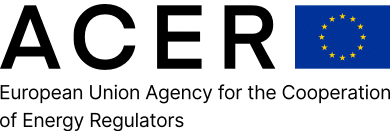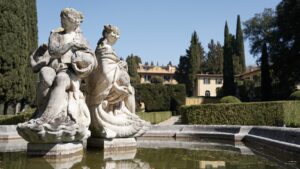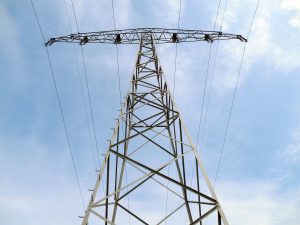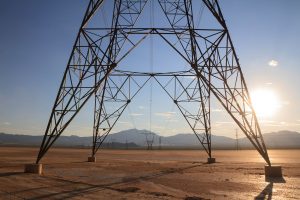EU Electricity Network Codes & the Clean Energy Package
‘Evolution of electricity markets in Europe’ is an 9-week online course in collaboration with the European Commission, ACER, and ENTSOE. Each week has reading activities, quizzes, forum discussions, office hours, and a live class to wrap up the week. Participants interact with each other, with the course instructors, and with expert panellists.
European electricity markets have been stress tested during the energy crisis of 2021-2022, leading to an electricity market reform. Rather than representing a revolution, this reform builds further upon the ongoing implementation and revision of the EU Electricity Network Codes and the Clean Energy Package. During this training, we provide a platform for experts to share experiences and for non-experts with a basic understanding of the electricity markets to get up to speed with the latest evolutions in Europe.
European Commission, ACER and ENTSO-E invited Florence School of Regulation to organise this training. Electricity markets are undergoing many changes, and it is not easy to keep up. With this training, we want to make it easier for stakeholders to engage in the ongoing electricity market integration process.
This training is the successor of 3 editions of the “EU Electricity Network Codes” course and builds on 3 editions of the “Clean Energy Package” course. In 2024, we will be running the fifth edition of the “Evolution of Electricity Markets” course after successful editions in the previous years.
In this training we provide insights on how European electricity markets have evolved from the onset of liberalisation until where we are today. Alongside the evolution of electricity markets, this online training is evolving as well:
In the first three weeks of the course, we cover topics that are mainly related to the transmission level. In the fourth week, we move on to topics increasingly related to the distribution level. We also include a legal week shedding light onto the Regulation on Wholesale Energy Market Integrity and Transparency (REMIT).
An open-access book serves as background reading material together with some of the most recent stakeholder reports and academic papers.
Welcome live class: 19 September 2024 – 2-3pm CEST
Week 1: The basics of electricity markets in Europe (20 September – 26 September 2024)
This week provides an overview of the fundamental micro-economics that are at the basis of how power markets function in Europe and other parts of the world where the power sector has been liberalized. We further explain why there is not one power market but a sequence of power markets in place, how the different market segments function, and who is operating those markets.
The course material starts by explaining the concept of marginal pricing, which has been in the spotlight since the European energy crisis in 2021-2022. We also explain the rationale behind having a sequence of markets as is currently in place in Europe. This sequence starts with electricity being traded years ahead in long-term markets, the reference day-ahead market, intraday markets, and finally near real-time trade in balancing markets producing an imbalance price. We discuss the central role of the power exchange, which has been renamed as the Nominated Electricity Market Operators (NEMO) for quite some years now, in operating the day-ahead and intraday markets. In this week, we also briefly highlight the impact of the ongoing market reform on the existing market design.
Topics: Nominated Electricity Market Operators, Marginal Pricing, Auctions, Continuous Trading, Gate Closure Time, Sequence of Power Markets, Day-ahead Market, Intraday Markets, Balancing Energy Market, Balancing Reserves, Imbalance Price, Long-term Markets, Redispatch
Week 2: How to trade electricity across borders? (27 September – 3 October 2024)
This week covers two large topics that are at the core of training electricity across country borders. First, we look at the European experience with the allocation of the rights to trade across borders, which has led us to “market coupling” as we know it today. Second, we discuss how to calculate border trade constraints. In other words, how do we decide how much we can trade across a particular border in each hour?
The course material covers the topics of historical privileges to trade across borders, market-based allocation of transmission rights and the evolution from explicit to implicit auctions (a synonym for ‘market-coupling’) in the day-ahead time frame that have been formalised in the EU electricity market network codes. The week also touches upon relevant developments in the timeframes before and after day-ahead. Furthermore, it explains why it is important to focus on border trade constraints, why trade constraints on virtual borders are calculated and who is best placed to carry out such calculations. It introduces the concept of flow-based market coupling and covers the topics of regional collaboration among TSOs and data exchange. Open issues when it comes to border trade constraints and their calculation, such as the configuration of bidding zones, are also discussed.
Topics: Market Coupling Operator Function, EUPHEMIA, XBID, Joint Allocation Office, Financial Transmission Rights, Bidding Zones, Flow-based Market Coupling, Nodal pricing, Capacity Calculation Regions, Common Grid Model, Remaining Available Margin
Week 3: How to combine electricity trade with system security to keep the lights on? (4 October-10 October 2024)
This week covers two large topics. We explore in more detail how system balancing is organised in Europe, and we explain why it is important to pay attention to the detailed technicalities of system operation and connection requirements.
The course material discusses how the responsibility to keep the lights on is shared between system operators and introduce the concepts of frequency containment, frequency restoration and reserve replacement. It explains balancing responsible parties and imbalance settlement, and cover the topics of balancing capacity tenders, balancing energy markets, and the related issue of scarcity pricing in balancing markets. Cross-border balancing markets and the European platforms for the exchange of balancing energy are other important topics of this week, as are open issues in the field of congestion management in balancing markets. The material also explores if and how regional system operation is organised regionally. The last part of this week are the EU connection network codes (RfG NC and DC NC) and their ongoing implementation and amendments, including the special case of energy storage and electric vehicles.
Topics: Balance Responsible Party, Balancing Service Provider, Frequency Containment Reserves, Frequency Restoration Reserves, Replacement Reserves, Gate Closure Time, Imbalance Netting, Load-Frequency Control Area, European platforms, Regional Coordination Centre, Critical Grid Situation, Power-Generating Modules, Power Park Module, Rate of Change of Frequency, Significant Grid User.
Week 4: Trading electricity at lower voltage levels and the role of the consumer (11 October – 17 October 2024)
This week covers two large topics. First, we explore how best to integrate distribution network constraints into (wholesale) electricity markets. Second, we discuss the new deal that has been offered to consumers through recent legislative packages and initiatives from the Clean Energy Package to the Green Deal.
The course material consists of recent academic papers and stakeholder contributions. Related to the integration of distribution network constraints into (wholesale) electricity markets, we will discuss several tools that are currently under discussion to manage distribution network constraints and improve the coordination between TSOs and DSOs. Examples are (enhanced) network tariff design, distribution locational marginal pricing, flexible connection agreements, and flexibility markets. Related to the role of the consumer, we discuss innovative practices in the retailing of electricity that affect the evolution of the supplier. Other topics that will be covered are active consumers, self-consumption, energy communities, new entrants in electricity markets, independent aggregators, peer-to-peer trading, and new consumer rights.
Topics: Network Tariffs, DSO, Flexibility Mechanisms, Flexibility Markets, DLMP, Retail Markets, New Paradigm, Consumers, Peer-to-peer, New Entrants, Aggregators, Communities, Energy Communities, Citizen Energy Communities, Renewable Energy Communities, Self-consumption, Active Customers, Dynamic Pricing, EU Green Deal
Week 5: REMIT (18 October – 24 October 2024)
Week 6: Buffer week to work on Mastery Challenges (25 October – 30 October 2024)
Deadline to submit the Mastery Challenge: 30 October 2024, midnight CET
Week 7 & 8: Mastery Challenges
Mastery Challenge 1: Offshore systems
Mastery Challenge 2: The future of capacity remuneration mechanisms
Mastery Challenge 3: Demand-side flexibility
Mastery Challenge 4: TBC
The course is given in English and developed for:
The participants can take the course on 3 different levels:
The amount of time required to take this course depends on the aimed course level as well as the level of expertise in the subject prior to joining the course. For example:
At the end of the course, the participants can earn a Certificate of Attendance, a Certificate of Completion or a Certificate of Excellence, depending of their performance and engagement throughout the course.
Following the success of the first edition, we are delighted to announce the 2nd FSR Alumni Day. This event provides former alumni with a special chance to reunite and remain informed about the latest policy advancements in their respective fields of study.
One of the sessions will be a continuation of the training on the Evolution of Electricity markets in Europe, scheduled for Friday, 25 October, in Florence.
Course Directors: Tim Schittekatte, Ellen Beckstedde
The EU Wind Power Action Plan acknowledges the importance of offshore systems to reach the European Union’s ambitions to become the first climate-neutral continent by 2050. The rapid growth and specific nature of offshore systems bring new challenges compared to how we traditionally design electricity markets. While the Electricity Market Design proposal includes some fundamental principles on the market design of offshore systems, open issues remain about the implementation of offshore bidding zones and the allocation of congestion rents between stakeholders. Also the interaction of these mechanisms with long-term instruments, such as power purchase agreements (PPAs) and contracts for difference (CfDs), remains unclear. In this session, participants will learn about the ongoing challenges in offshore systems and the proposed solutions. Using interactive poll discussions, participants will be engaged to think and share about some of these open issues. Furthermore, a comparison will be made with the onshore market design. As a result, participants will learn why some of the proposed solutions in offshore market design might be seen as experiments to the way we traditionally design electricity markets in onshore systems.
Each year, the Florence School of Regulation – Energy and Climate (FSR Energy & Climate) awards scholarships for a wide variety of training courses targeting a broad audience of professionals and academics.
Applications will be assessed by a Selection Committee of FSR members on a yearly basis. The successful candidates will be informed after February 2024 and will be provided with all relevant information on how to enroll in the online course or residential training of their choice.
Send your application by 28 January 2024.
Discounts
Special offer for group enrolments: 10% discount from 5 participants from the same organisation
Contact: fsr.secretariat@eui.eu
Cancellation policy
Paid registration fee is non-refundable. However, registrant substitution may be made up to 20 days before the start date of the course.
**Please kindly send your certificate of current studies with the stamp of your university to FSR secretariat (fsr.secretariat@eui.eu).
The start and end dates of your studies should also be clearly mentioned on the document. Please make sure that your period of studies fully covers the training course duration.



What will you learn
Join us for a unique opportunity to reconnect and stay updated on the latest policy developments in the fields you previously studied.
LEARN MORE AND REGISTER
EU Electricity Network Codes & the Clean Energy Package Enter the world of electricity markets in Europe ‘Evolution of electricity markets in Europe’ is an 9-week online course in collaboration…

Crafting research with impact on energy policy and regulation LARS is a residential training addressing researchers with modeling skills who are keen to support the energy policy and regulatory debate.…

Regulation of energy utilities All you need to know in one professional course With the Annual Training on the Regulation of Energy Utilities, you will gain extensive knowledge of the fundamental principles of…

Digitalisation is transforming transport and mobility. Understanding the regulatory implications of digitalisation requires knowledge of EU digital law and policy (DSA, DMA, Data Act) and the regulatory strategy in transport…

Learn how to master electricity markets and key issues around their reform The energy crisis that was triggered by the Russian war in Ukraine has led European power markets to…

This new training course on the Regulation and Integration of Renewable Energy provides a comprehensive introduction to the topic with the latest updates, including developments in policy and regulation in…

Understand the basic principles and most topical issues of gas sector regulation in Europe and worldwide Building on our flagship ‘Specialised Training on the Regulation of Gas Markets’, this new…

This FSR-ACER residential course in Florence covers the scope of the EU Regulation on Wholesale Energy Market Integrity and Transparency (REMIT) and the way in which it is implemented. Mapping…

Learn the fundamental regulatory principles of the electricity and gas sectors through hands-on, real case activities and examples with instructors from national regulatory authorities from Europe and North America, the…
To meet, discuss and learn in the channel that suits you best.